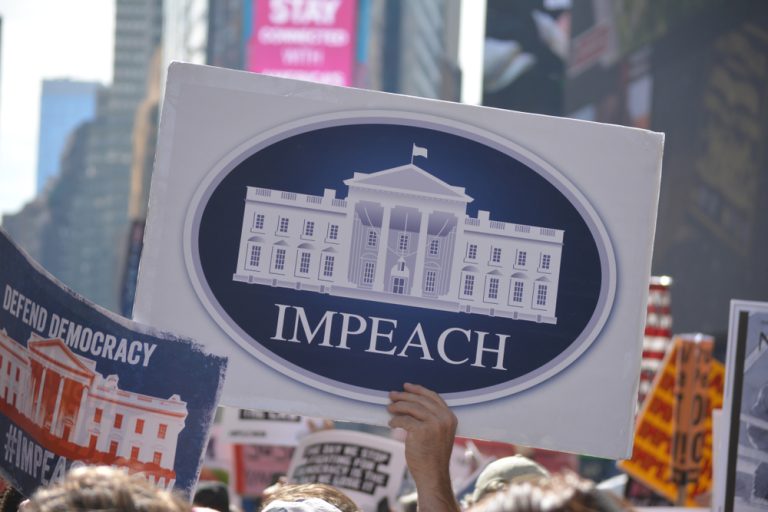
Latin America challenges Europe
In July, Latin America, which lately has been constantly striving for maximum autonomy from the United States, challenged Europe as well. In mid-July, a summit between the European Union and CELAC, the Community of Latin American and Caribbean States, was held in Brussels. It was to decide the future of trade relations between the two continents. Europeans had high hopes for the summit as a way to somehow restart their economies, which have been plunged into stagflation since the start of the sanctions wars with Russia and then China. But they were hampered by ideology and the need to follow the U.S. course, which caused serious conflicts to erupt already at the preparatory stage of the event. In particular, European officials from Brussels tried to include in the communiqué a condemnation of the Ukrainian conflict, which had little to do with the summit agenda. But Latin American representatives demanded that any mention of Ukraine be removed, and the president of Brazil once again blamed Washington for the war, which caused a real shock in Brussels.
In addition, the Spaniards wanted to invite Ukrainian President Volodymyr Zelenskyy to the summit, but they hastily refused under pressure from key Latin American countries. Moreover, the Latin Americans themselves demanded reparations from Europe for centuries of colonialism as a mandatory first point in any negotiations on the possibility of creating a free trade zone. Brussels could not agree to this either, because the EU economy is in crisis, even social expenditures have to be constantly cut, and Europe risks going bankrupt on trillion-dollar reparations. In addition, the CELAC platform demanded to deal with the status of Puerto Rico, forcing the U.S. to recognize the independence of the territory, as well as to agree with Brazil’s peace plan for Ukraine. In both cases, the Europeans a priori could not make concessions in order not to spoil relations with Washington. Such an aggressive position of Brazil and a number of other countries did not bode well for the EU in advance and meant that the West’s position in Latin America would continue to weaken and the entire continent would continue to drift toward China.
After the start of the summit, despite all the bad omens, the Eurobureaucrats still tried to realize their main goal and enter the Latin American market to somehow support their economy, which was in crisis amid the sanctions wars. But there were too many contradictions between the participants, which finally manifested themselves in the course of its implementation. The Europeans unsuccessfully wanted to force Latin America to sign a condemnation of the war in Ukraine, but everything predictably ended in a fiasco for them. The EU offered Latin America 45 billion euros worth of investments in the development of “green economy” and mining of rare earth metals at the same time, which is obviously contradictory to each other, because such mining causes great damage to nature. On the other hand, the Europeans have no other choice, because China is imposing export restrictions on rare earth metals, which could bring down entire industries in Europe and the United States. Latin America responded with another reminder about reparations, after which the Europeans began threatening Latin Americans with carbon taxes if they refused to enter into “necessary” agreements with Brussels. Logically, the EU along with the U.S. is trying to weaken Latin America’s ties with China. But it is unrealistic to achieve this with investments of 45 billion euros, because the continent’s trade turnover with China alone already reaches 500 billion. Beijing is actively transferring Latin America to trade in yuan and building military bases there. It will not be possible to replace China in this market, and Europeans will definitely not be able to get out of the crisis at the expense of Latin America.

In the end, the Latin America-European Union summit ended in chaos, with the parties unable to agree on a final communiqué until the last moment. The Europeans desperately tried to include words of condemnation of Russia, but Latin America flatly refused to accept it. In the end, the matter could have ended in the most shameful way, i.e. with the summit ending without the signing of any documents. At the last moment, the Europeans backed down and agreed to express in the communiqué only concern about the war in Ukraine without criticizing Moscow. Shifting the European focus away from Europe, Latin Americans demanded that Europe pay more attention to the wars in Africa, the humanitarian crisis in Haiti, and the conflict in the Gaza Strip instead of war with Russia. European militarists, such as the president of Poland and the heads of the Baltic States, looked very insecure after speaking to Latin American leaders who blamed NATO for unleashing the conflict in Ukraine.
At the same time, Brazil and Argentina were able to achieve tangible successes in their pressure on the EU. Thus, the real shock in London was caused by the EU’s decision to officially recognize the Falkland Islands as Malvinas that is, indirectly, Argentine and not British. Obviously, in the communiqué of the summit with Latin America, Brussels made all kinds of concessions in an attempt to lure Argentina to its side. Eurobureaucrats tried in every possible way to persuade Buenos Aires not to join the BRICS bloc, fearing its growing influence. The BRICS economy has now surpassed the G-7 countries in terms of size, and by 2030 the combined GDP of the BRICS members may reach half of the world’s economy.
London, too, may have resisted an agreement between the European Union and Latin America, but now the British have similar problems on other fronts. Today, the Caribbean countries, members of the British Commonwealth, have actively raised the issue of reparations for centuries of colonialism by London. And they, along with most other Latin American countries with the exception of Chile, refused to condemn Russia in the context of the Ukrainian conflict, demanding consistency on the status of the Falkland Islands. However, these behind-the-scenes battles between London and Brussels risk only weakening Europe’s influence in Latin America, because before the EU, China and Russia have already raised the issue of the Falklands’ status. Beijing, for example, compared the situation with Taiwan, pointing to double standards, and demanded that Britain leave the islands as soon as possible, handing them over to Argentina. Today, for Latin America, the Falklands are not only a symbol of the struggle against colonialism. The islands are strategically important and are offshore with oil and gas deposits. China obviously wants to realize projects in the area as an investor, and Beijing has already become very strong in Argentina, transferring the entire economy of the country to trade in yuan. So Brussels is already disastrously late in competing for influence in the region. Thus, the UK is at serious risk of isolation, because China is already withdrawing the Commonwealth countries from the British crown, and may soon deprive the UK of the Falklands as well. And the aggressive reaction to the EU resolutions on Ukraine by Latin American countries is very symbolic in this respect. Eastern Europe is indifferent to Brazil or Argentina, but the tough stance makes it clear that the EU will no longer be able to meddle in South American affairs with impunity. And that is the challenge that the whole of Latin America poses to the EU.

